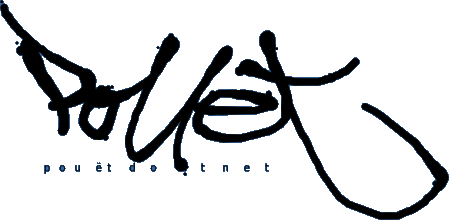Raymarching Beginners' Thread
category: code [glöplog]
las: ...but it's not "OK", it's horrible :P
oh, and simplex noise != perlin noise. It's a similar kind of noise, but it's not perlin noise.
Oh yeah, that one looks really horrible... But it will be ok for 4k ;)
Hmm maybe I screwed something up... Paulo - could you also test the original noise by decipher (also to be found in the toolbox thread)?
Hmm maybe I screwed something up... Paulo - could you also test the original noise by decipher (also to be found in the toolbox thread)?
+ that simplex noise would slow down the raymarching even more horribly.
las: the quality of the noise isn't important if you sum many octaves (fractal plasmas etc), but if you have few octaves then it looks really bad ;)
Perlin noise and Perlin simplex noise is not just a blurred noise texture.
http://webstaff.itn.liu.se/~stegu/TNM022-2005/perlinnoiselinks/perlin-noise-math-faq.html
http://webstaff.itn.liu.se/~stegu/TNM022-2005/perlinnoiselinks/perlin-noise-math-faq.html
Visually the interpolation points are uniformly distributed but not aligned in a point lattice.
I'd prefer the perlin interpolated algo. It looks smoother.
It looks nice and all, but it is not suitable for 4k...
Perlin noise in 4k: Use HLSL's noise-function in a texture shader. Texture shaders are implemented on the CPU, and the noise-function actually works then. It's a bit tricky to get the texture to tile, but can be done.
i believe that's how Himalaya/TBC was done, right?
Is there anyway to get that to work in OpenGL? Or is it better to just create a noise texture on the CPU?
Quote:
Perlin noise in 4k: Use HLSL's noise-function in a texture shader. Texture shaders are implemented on the CPU, and the noise-function actually works then. It's a bit tricky to get the texture to tile, but can be done.
We used that in 2007 already. It's something like 3 function calls with D3DX.
But I prefer having everything in one shader.
+Rendermonkey supports texture shaders (tx_1_0) - so you can use that and generate 3D textures with texture shaders.
http://via.pulsene.ws/15uWX Did you guys check that noise ?
p01: plz, read the context. that's exactly what spawned the noise-discussion :P
perlin!=simplex&&simplex!=perlin
"Interactive Modeling of Implicit Surfaces using a Direct Visualization Approach with Signed Distance Functions"
http://cg.ibds.kit.edu/downloads/IntModelingSDF.pdf
hmm...
http://cg.ibds.kit.edu/downloads/IntModelingSDF.pdf
hmm...
Sorry, super duper busy with the baby. I was indeed missing some context and tons and tons of sleep :p
p01, you have the baby?
[offtopic] Yes. She's 3.5 months old and amazing ... and demanding like all babies I guess. I took parental leave + holidays for her first year. Hopefully I'll manage to be a bit productive during this period. [/offtopic]
Great news, congratulations!
What a cool paper
Congratulations p01!
My baby is 9 months now.
Understand you perfectly about the sleep issue LOL
My baby is 9 months now.
Understand you perfectly about the sleep issue LOL
hornet: Ohh nice at least one of the guys is a demoscener.... remember parsec? ;)
Basically that paper does introduce nothing really new and the fragment shader source example is not really helpful at all.
The approach they propose is more or less obvious. Seems as if someone over there reads this thread... ;)
Basically that paper does introduce nothing really new and the fragment shader source example is not really helpful at all.
The approach they propose is more or less obvious. Seems as if someone over there reads this thread... ;)
